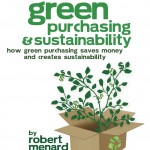What Is Sustainability
Sustainability, in its largest sense, is the ability to endure. The human race has an existential interest in sustainability as it applies to our host planet. However, sustainability has many more specific definitions and applications in today’s business world, often depending upon agenda.
There are at least three loosely organized factions whose definitions overlap as well as disagree to some extent. They apply to business to varying degrees.
- People, Planet, and Profitability – This over arching 3Ps definition applies to entire enterprise organizations and is sometimes called the Triple Bottom Line
- Social, Environmental, and Financial – This definition is favored by many public sector parties that refer to the Triple Base Line
- Economical, Ethical, and Educational – Academic and research institutions define sustainability by these three Es that have some common characteristics to the other two definitions
 Sustainability is a work in progress; there is no coherent or reliable school of thought or controlling body. The same cloud envelops its tandem companion “green purchasing”. It might be surprising to learn that there is no uniform rating system to evaluate or rank an organization’s sustainability. Various systems exist and are under development for measuring sustainability of a company or product. The construction, chemical, and paper industries, among others, have been engaged in the pursuit of sustainability for more than a decade but other industries are just entering the arena. While some standards will certainly evolve, we need not wait to pursue what will be a reality for most of us in the purchasing profession.
Sustainability is a work in progress; there is no coherent or reliable school of thought or controlling body. The same cloud envelops its tandem companion “green purchasing”. It might be surprising to learn that there is no uniform rating system to evaluate or rank an organization’s sustainability. Various systems exist and are under development for measuring sustainability of a company or product. The construction, chemical, and paper industries, among others, have been engaged in the pursuit of sustainability for more than a decade but other industries are just entering the arena. While some standards will certainly evolve, we need not wait to pursue what will be a reality for most of us in the purchasing profession.
